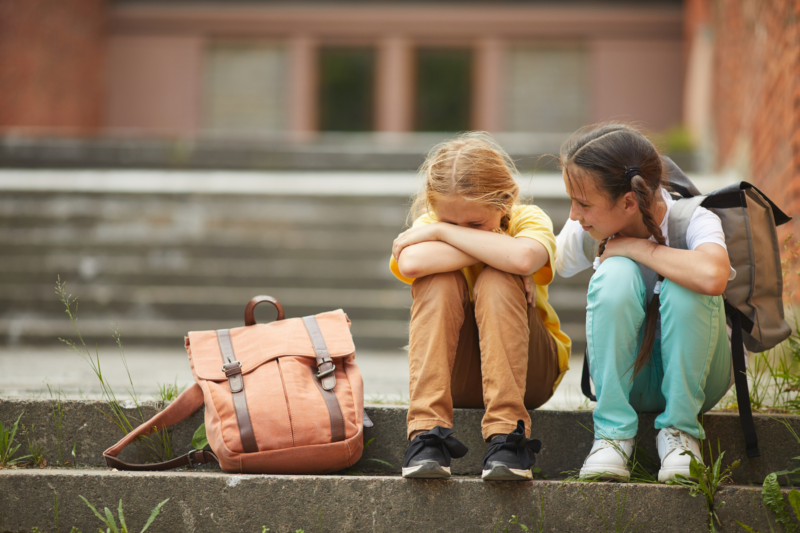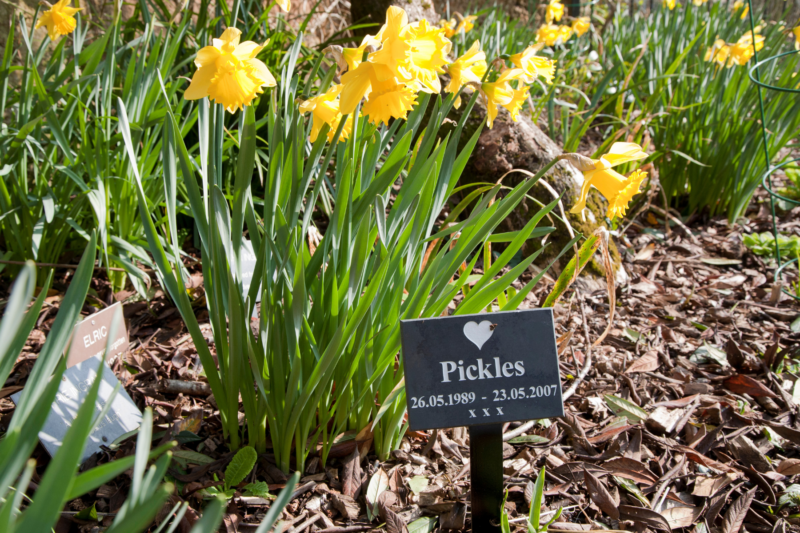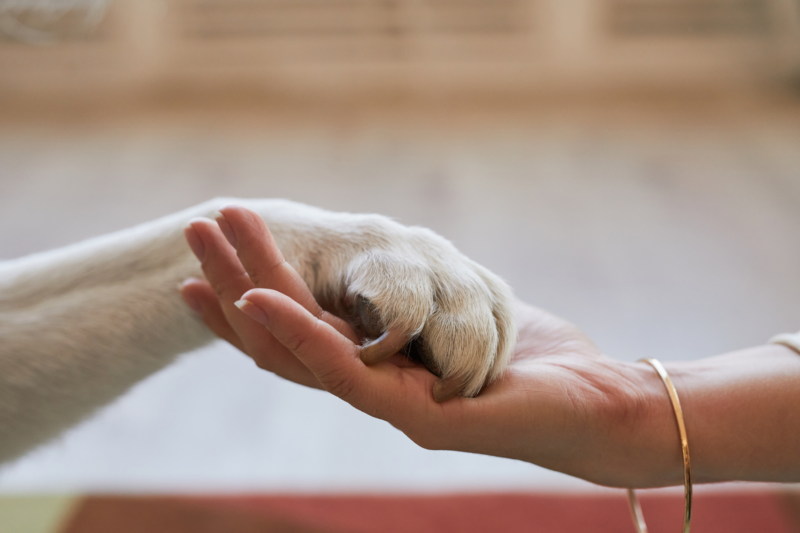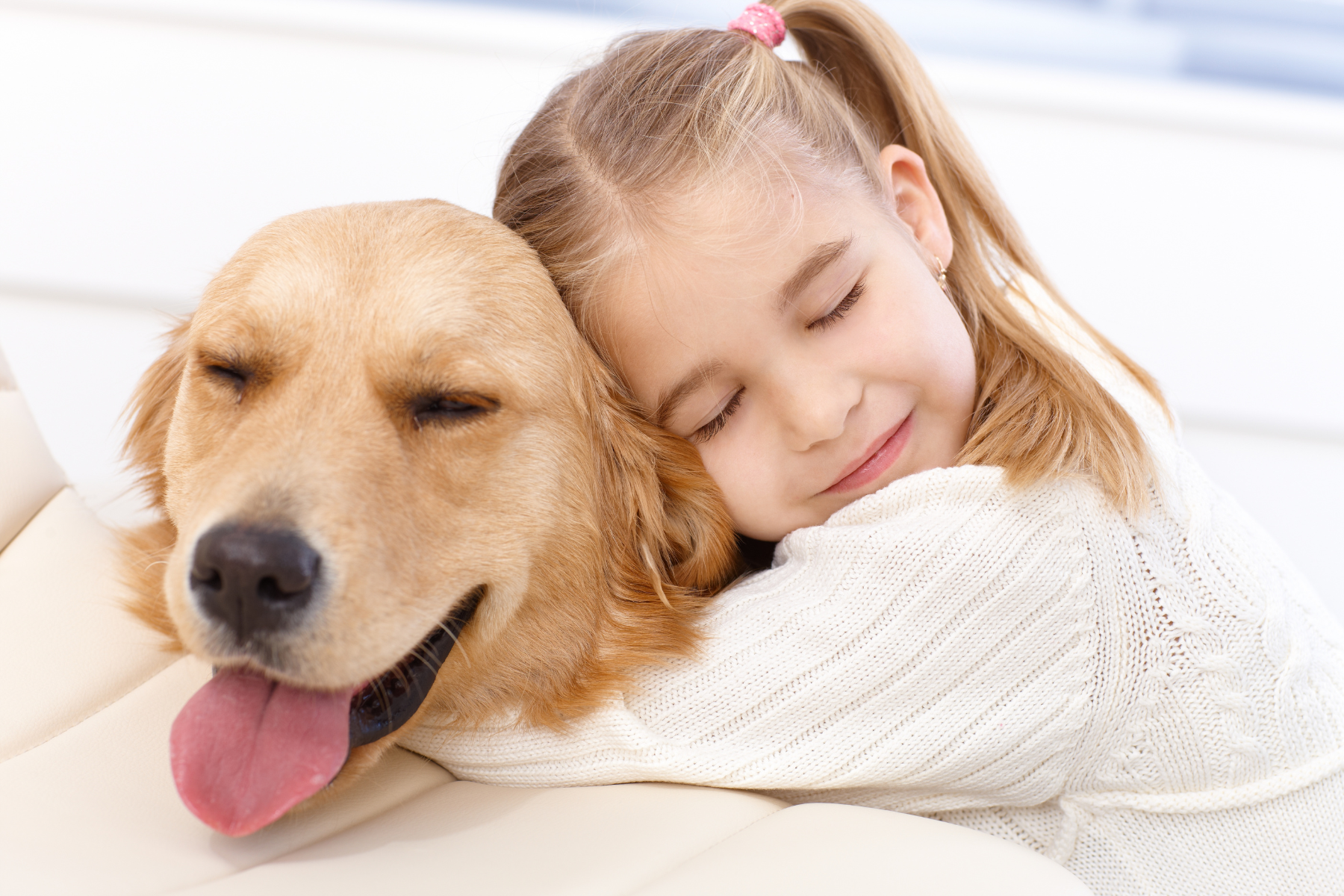There’s magic in the friendship between a child and their pet. Often, it’s the first unconditional love they experience, a confidante and playful partner. But as with all our loved ones, our companions can’t stay with us forever, and sadly, this can be a child’s first encounter with loss.
Many of us feel unsure how to navigate this difficult time with our children. So, we’ve put together a little guide to help you support your child through pet loss. Together, we can create a space for their grief and cherish the memories of their furry friend.
Understanding Your Child’s Grief
Every child grieves differently, and their experience depends on their age and maturity.
- Young children (under 5): Losing a pet can shake their sense of security, making them feel like loved ones can just disappear. They may also believe their friend will return or they can visit them, a sign of their developing understanding of death. While they might express sadness in short bursts, they often process emotions through play. This doesn’t mean they’re not grieving; it’s just their way of expressing it.
- School-aged children (5-11): Their grasp of death becomes more concrete. They might fear death itself, blame themselves for the loss, or ask detailed questions surrounding death. Language becomes a stronger tool, but expressing feelings verbally might still be challenging. Strong peer and family relationships are crucial during this time to provide comfort and security.
- Pre-adolescent (10-14): Their understanding of death solidifies – it’s final and inevitable. While “magical thinking” might still linger, they may be curious about the physical aspects of death. Hormonal changes can intensify their emotional response. They might seek support from different family members or friends at various times.
- Teenagers (14)+: Their conceptual understanding of death is closer to an adult’s. However, they might avoid discussing it for fear of seeming different to their peers. Grieving can feel like a vulnerability they want to avoid, especially as their strive for independence.
Remember, there’s not right or wrong way to grieve. We can support our children thourgh pet loss by creating a safe space for them to express their emotions, however they choose.

Creating A Safe Space For Emotions
The most important thing you can do is create a safe space for your child to talk about their feelings, no matter their age. Open communication and active listening are key.
- Listen actively: This means giving them your full attention, making eye contact, and avoiding distractions. Let them know you’re there for them, ready to listen without judgement.
- Validate their feelings: Let them know it’s okay to feel sad, angry, confused, or even guilty. Phrases like “it’s okay to feel sad” or “I understand why you might be angry” show you hear them.
- Be honest and truthful: Answer their questions honestly and in a way that matches their age. Avoid phrases like “Snoopy went to a farm” that can cause confusion later. It’s okay to say “I don’t know” for complex concepts like death.
- Share your own feelings: Talking about how you feel can open the door for them to share theirs. Let them know you’re sad too, but remember to keep the focus on their emotions.
- Avoid dismissive phrases: Instead of “They’re in a better place” (which might not resonate) or “Why don’t we get another one?” (which minimises their loss), try asking open-ended questions about their memories with their pet. This encourages them to express their feelings and keeps the conversation going.
By creating safe space, listening actively, and validating their feelings, you can help your child navigate this difficult time.
Honouring Emotions and Saying Goodbye
Saying goodbye to a furry friend can be a shared experience for you and your child experiencing pet loss. Here are some ways to create lasting memories and celebrate the special bond they had with their pet:
- Create a memorial or ritual: This can be a simple act of love that helps both you and your child process your grief. Planting a tree in your garden, making a scrapbook filled with photos and stories, or even writing a goodbye letter can be a meaningful way to remember your pet.
- Share stories and reminisce: Encourage your child to talk about the funny things their pet did, the adventures they shared, and the love they felt. Sharing these happy memories can be beautiful way to honour their pet’s life and bring a smile, even amidst the sadness.
We understand this is a difficult time, and we’re here to support you. We won’t include links to specific memorial ideas in this piece, but if you’d like some inspiration, you can check out our blog post on Honour Your Beloved Pet: Creative Ways To Remember Your Furry Friend.

Moving Forward
Moving forward after losing a pet can be a personal journey. There’s no right or wrong timeframe for grief. Sometimes, the thought of welcoming another furry friend can bring comfort. However, it’s important to remember that a new pet won’t replace the one you lost. Allow yourselves to grieve fully before considering a new addition.
If your child is struggling significantly, seeking additional support can be incredibly helpful. We’ve compiled Bereavement Support resources on our website to guide you:
- Children’s books dealing with pet loss: These stories can help children understand and express their emotions in a safe space.
- Grief support groups for children: Connecting with others who have experienced similar loss can be a comforting and validating experience.
- Professional bereavement counsellors: Counsellors can provide specialised support for both you and your child during this difficult time.
Remember, you’re not alone in this. We understand how much your pet meant to your family, and we’re here to support you in any way we can.
Grieving the loss of a pet takes time, and that’s perfectly okay. With your love and support, your child will heal. Remember, the depth of their grief reflects the strength of the love they shared with their furry friend. It’s a beautiful testament to the power of connection.
Even though this loss is tough, the love your child shared with their pet will always endure. Those cherished memories will become a source of comfort, a reminder of the special bond they shared. And as they move forward, this experience can help them learn to love and connect with others in meaningful ways.
We understand how much your pet meant to your family, and we’re here to support you in any way we can.

For Further Reading
If you require more resources on supporting your child through pet loss, we have included two organisations below who are dedicated to pet bereavement.
- The Blue Cross for PEt Bereavement Support: https://www.bluecross.org.uk/pet-bereavement-and-pet-loss
- Offers a free helpline, email support, and an online community specifically for pet loss.
- The RSPCA for Coping with Pet Loss: https://www.rspca.org.uk/adviceandwelfare/pets/bereavement
- Provides information and resources for coping with pet loss, with a section on supporting children.
